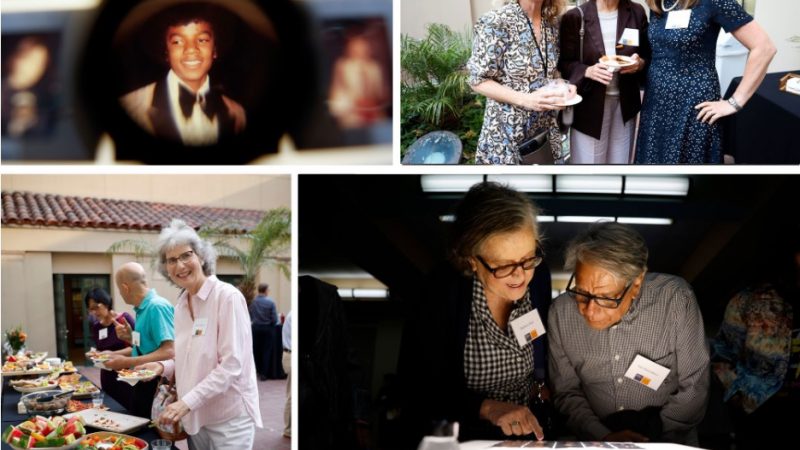Last night, New York Times columnist Gail Collins visited ALOUD to talk about Texas, and how and why it casts such a large influence over the other 49 states in the union. Collins said that her interest in writing a book about Texas was sparked by Texas Governor Rick Perry’s 2009 “loud speech heavily attacking the federal government in front of people waving ‘secede’ signs.” During the hour-long conversation with commentator Anne Taylor Fleming, Collins told the full-capacity audience at the Central Library what she had discovered while observing the power that Texas has over American politics.
To the delight of the audience, Collins used a brilliant combination of humor and intelligence to describe the Texan influence over various aspects of our country’s current politics, including the modern Republican Party, America’s economic policy, and America’s education system. When it came to education, Collins described serious issues, such as the Texas School Board’s power over the textbooks used by students across the nation, along with more funny topics, such as the bizarre sex education programs in Texas. Collins also shared her views on whether or not there is a Republican “war on women”, along with her insights on Mitt Romney’s infamous “dog on the roof of the car” incident.
However, that summary does not capture the humor and wit that was displayed by Collins when she discussed her new book, As Texas Goes… along with various current political topics. During the audience Q&A, she discussed her career in journalism (which includes honors such as being the first ever woman editor of the Times’ editorial page). She described her goal as a journalist as “explaining complicated things in a way that is easier to read”, and she certainly displayed this skill during her appearance at ALOUD. Gail Collins told the audience that most people in California are probably not as “obsessed with Texas” as she is. After leaving the program, many audience members began to have more of an obsession with the Lone Star State.
Missed the program? Listen to the podcast here.
-Ben LaZebnik, Intern









